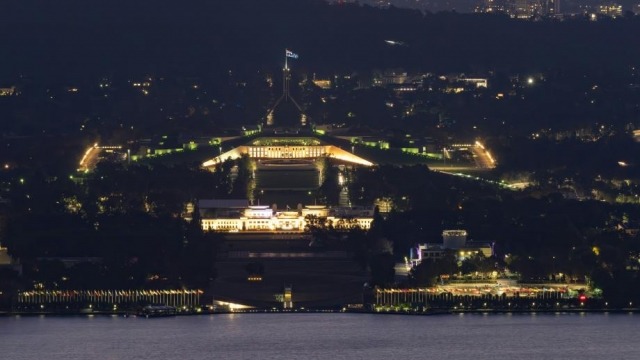Opinion: 10 thoughts about the election ... and a warning

By Mark Kenny
A version of this article was originally published by The Canberra Times.
First is obvious. He may not be Australia's most seductive rhetorician, but Anthony Albanese is the nation's pre-eminent politician.
Soon to mark three decades in Canberra, Labor's unfashionable parliamentary stayer proved he is a tungsten tough leader who focused laser-like on the median voter and managed variables with more foresight than any politician since John Howard.
His chief irritants on right and left were defeated so thoroughly that each was banished from the Parliament, their parties routed and decapitated.
Key among his distinguishing attributes, argues my colleague, Dr Marija Taflaga, is an uncommon capacity for "strategic waiting".
A second thought is this. After smashing a 21-year run of Australian PMs not making it to a second term, Albanese nudges hero status within Australia's oldest party in one of the world's oldest democracies. Not too shabby for a political figure derided by progressives as a tinkerer and by the right as not up to the demands of national security.
Third. The Liberals' delusion of a new suburban backlash was years in the making. After their worst defeat in 2022, the party commissioned a review, read its recommendations on things like women and getting policy out in time, and then studiously ignored the lot. Indeed, Peter Dutton flagged what would prove to be his epic vote-shedding strategy in his first bullish statement as leader. Nobody in the Liberal or Nationals party rooms said boo.
Fourth. The very existence of the Liberal Party cannot be assumed. Don't be fooled by the exaggerated protestations of those within its remnant parliamentary ranks who insist they will bounce back. Of course they must say this. But political parties have come and gone before. It was only when R G Menzies created the Liberal Party as an amalgam of non-Labor interests in the 1940s that what we regard as permanent came to be. The Liberal-Nationals Coalition has held office for 52 of the 81 years since its formation. It was, as Christopher Pyne liked to skite, "a vote-winning machine". That era is going the way of baby boomers who now constitute the party's shrinking conservative base.
Fifth. Personnel matters. Leadership matters. The 2022 loss of the saleable liberal, Josh Frydenberg, licensed the ideological careen under Dutton that would render the Liberals irrelevant to most urban voters in this election and the next. Recognising this is the threshold challenge for rescuing the party's pragmatic-conservative value proposition to voters. Talk is not sufficient. It now needs to visibly demonstrate change by walking the walk. Sussan Ley is the logical choice right now.
She proposes to "meet the Australian people where they are". This is the only sensible message to agree on internally if there is to be any hope of credibly communicating it externally. Opting for the right-wing fantasy ticket of Angus Taylor and Senator Jacinta Nampijinpa-Price (the darling of Sky "after dark") would transmit the insane assessment that, in fact, Dutton had not been hard-line enough.
Sixth. Dutton was at war with the media. This was revealing. While relentlessly branding Albanese weak, it was Dutton who dogged the standard rigours required of high office. If he truly coveted the nation's top job, he would have buried his animosity, deep-sixed his rancorous "hate media" gibes, and fronted up to frequent Parliament House press conferences and interviews. The tougher the better. And he would have appeared at the National Press Club in the final week of the campaign per the Australian election tradition. The PM did. It was combative, but effective.
Seventh. Albanese read Dutton's media cowardice like a book, granting the Liberal leader no less than four televised election debates. Two is common, four is unprecedented. This reflected Albanese's confidence that Dutton was underdone on policy, not match-fit for testing public interchanges, and that Dutton's abundant aggression would be his undoing with ordinary voters. All proved correct.
Eight. The flagrant campaign for the Coalition, hammered nightly by Sky News, materially distorted its offering. Its foaming zealotry might have provided Dutton with a happy place for softball interviews, but these foghorns coaxed the Coalition into a resentful anti-woke cul-de-sac rent with scoffing cynicism and partisan "common sense". The various ways in which this febrile barracking separated the Coalition from ordinary Australian voters are legion, but prominent examples include its absurd government-funded nuclear policy, its belatedly dumped work-from-home ban, a proposed referendum to give ministers deportation powers over migrants, and a nasty populist plan not to create unemployment in Canberra rather than jobs.
Nine. The Greens party's always grandiose claims to be an emerging force in the House of Representatives are over. For good. Their demise proved what was already known - that holding together a broad electoral constituency - rather than just a highly motivated section of it - requires nuance and compromise. A party of indignant protest cannot be both broad-based and narrowly pure.
Tenth. Moderate NSW Liberal senator Maria Kovacic is correct - nuclear is a dead duck and always was. The new Liberal leader should immediately declare the climate wars over. They lost. Sovereign risk for renewables investment would evaporate were there a Coalition commitment to work with Labor on the energy transition.
Oh, the warning? Big electoral shifts connote future volatility. Just like early voting, if you've done it once ...
Mark Kenny is the Director of the ANU Australian Studies Institute and host of the Democracy Sausage podcast.








